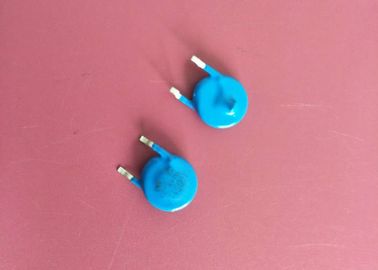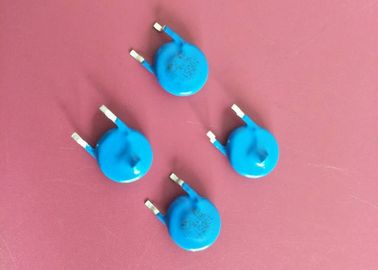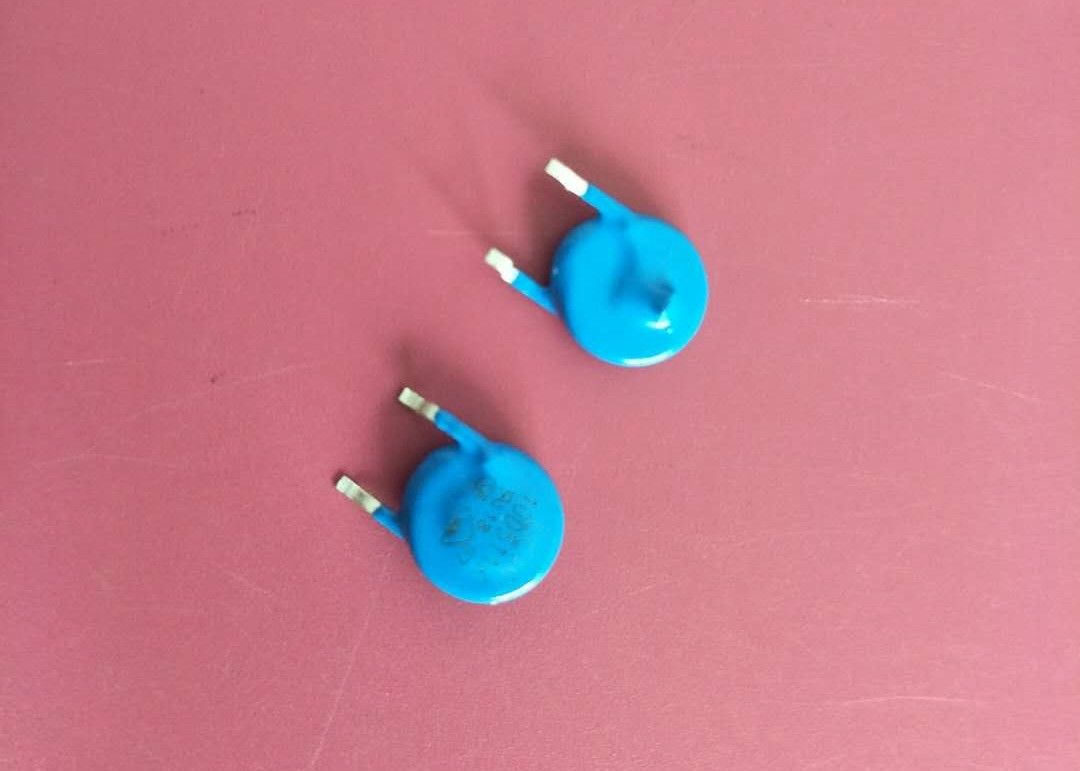Surface Mount Encapsulation SMD Varistor 10D511K 10mm 320VAC 4KV 2KA For Power Supply
Product Details:
| Place of Origin: | Dongguan,China |
| Brand Name: | UCHI |
| Certification: | cUL,VDE,RoHS |
| Model Number: | 10D511K |
Payment & Shipping Terms:
| Minimum Order Quantity: | 1000 Pieces |
|---|---|
| Price: | 0.05 ~ 0.06USD/OC |
| Packaging Details: | Bulk |
| Delivery Time: | 2 Weeks |
| Payment Terms: | T/T |
| Supply Ability: | 1000,000 PCS Per Month |
|
Detail Information |
|||
| Article: | SMD Varistor 10D511K | VAC: | 320V |
|---|---|---|---|
| VDC: | 415V | V1.0mA: | 510V |
| VC: | 845V | Ip: | 25A |
| Highlight: | surface mount varistor,surface mount components |
||
Product Description
Surface Mount Encapsulation SMD Varistor 10D511K 10mm 320VAC 4KV 2KA For Power Supply
Features
■ Flame retardant coating (UL94V0)
■ Excellent transient voltage suppression characteristics
■ Higher surge current
■ Wide varistor voltage
■ V-I characteristics are the same in both polarity
■ Marking: Blue body color
■ Products with lead-free terminations meet EU RoHS requirements
Performances
| Electrical parameters | |||||||
| Varistor voltage (V1mA) | 459V | ~ | 510 V | ~ | 561V | ||
| Max. continuous operating voltage | Vrms: 320 V; | VDC: 415V | |||||
| Rated power | 0.4 W | ||||||
| Max. clamping voltage (8/20μs) | VC: 845V; | Ip: 25A | |||||
| Surge current (1×8/20μs) | 2500 A | (8/20μs) | |||||
| Max. energy | 96 J | (2ms) | |||||
| Typical capacitance | 180pF | (1KHz) | |||||
| Leakage current | ≦20μA | (75% of V1mA (DC)) | |||||
| Operating temperature | -40℃ ~ +85℃ | ||||||
| Storage temperature | -40℃ ~ +85℃ | ||||||
| Physical parameters | Unit : mm | ||||||
|
|
D (max.) | 12.0 | |||||
| F (±0.5) | 7.5 | ||||||
| T (max.) | 5.6 | ||||||
| H (max) | 15.5 | ||||||
| L (min) | 2.3 | ||||||
| d (±0.08) | 1.5 | ||||||
| Trademark | UCHI | ||||||
| P/N | 10D511K | ||||||
| Approvals | VDE,cUL | ||||||
| Date code | Y: Year M:Month | ||||||
| Lead wire | CP wire | ||||||
| Coating | Blue insulated epoxy resin | Weight, g | 0.8 | ||||
Process for Determining the Correct Varistor
![]()
-
Determine the continuous working voltage that will be normally across the varistor and select a varistor with maximum AC or DC voltage to match this or slightly higher. 10-15% higher max rated voltage than the actual line voltage is common as supply lines often have a voltage variance tolerance. Often, a varistor will already have this ratio figured into their voltage values. When an extremely low leakage current is more important than the lowest protection level possible, a varistor of even higher operating voltage may be considered.
-
Establish the energy absorbed by the varistor during an event. Although this can sometimes be an unknown value, this is determined by using all the absolute max load values of the varistor during an event within environmental and datasheet specifications . It is important to select a varistor with an energy dissipation rating that at minimal is equivalent or ideally exceeds the energy dissipation required by the event the circuit may produce. The MOV can react to its rated maximum energy level only one time, and then is recommended for replacement. Although the component may appear to be working after this event, it may not function properly.
-
Calculate the peak transient current through the varistor, often known as the surge current. The surge current, is the maximum current that can pass through the MOV within a specified duration and waveform. It is important to select a varistor with a surge current rating that is equivalent or ideally exceeds the current rating required by an event the circuit may produce to ensure proper function. Although the component will handle this surge, most manufacturer’s regard the surge current as a one-time occurrence before the part is recommended for replacement.
-
Determine power dissipation requirements. It is important to select a varistor with a power rating that is equivalent or ideally exceeds the power handling required by the event the circuit may produce. It is common to have the power, surge current, and energy rating to be much higher than the event anticipated. These de-rating factors are commonly at least 50x greater than the required many-time stress tolerance. If unsure about the factors of the event, it is more safe to pick a device of higher power, surge current, and energy ratings.
-
Select a model to provide the required Varistor Voltage MAX, sometimes known as clamping voltage (MAX). Clamping voltage must be selected based on the approximate max voltage value you will allow your circuits input or output to see during an event. You will have to make sure your circuit will be able to handle this voltage. In short, this is approximately the highest voltage your circuit down-line should experience. However, the varistor will begin conduction from approximately the min varistor voltage and this may have some smaller clamping effect prior to the actual clamping voltage.
-
Product Photos







